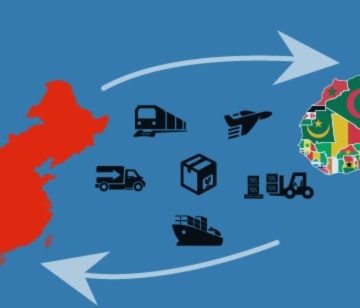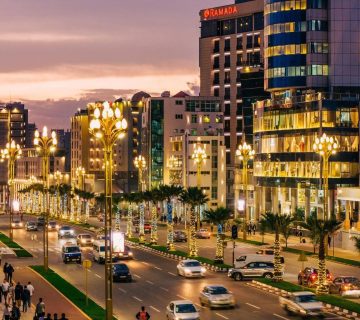The fragile seven-day ceasefire agreement signed in Jeddah on May 22, 2023, came to an end on May 29, 2023. A new seven-day ceasefire truce has since begun. The previous ceasefire was quite fragile, even though it was being monitored by two powerful mediators—the United States and Saudi Arabia. However, it did have some positive impacts. For example, it allowed civilians to move more freely from high-risk areas to safer places, and it helped to reduce violence compared to other truces that had no monitoring mechanism in place. Many people in Khartoum used the ceasefire to move to nearby states or flee to neighboring countries.
However, the parties have not fully committed to implementing the ceasefire. There have been many ceasefire violations in various parts of Khartoum, including the deployment of forces in new areas and fierce confrontations in many strategic areas and institutions. Despite active attacks by the Sudanese Armed Forces (SAF) on many gatherings of the Rapid Support Forces (RSF), the RSF still control vast areas of Khartoum. The future of the ceasefire is uncertain. It is possible that the parties will be able to reach a more lasting agreement, but it is also possible that the violence will resume. The situation remains tense, and it is important to continue to monitor the situation closely.
On the humanitarian side, the volatile security situation has prevented humanitarian aid institutions and NGOs from providing aid to significant numbers of needy people in Khartoum. Only a small amount of medicine has been delivered. The saddest aspect of the humanitarian situation is that armed forces are still using hospitals and health facilities for military purposes. They have not withdrawn from these institutions, as they promised they would do. This has increased frustration among civilians, who are hoping for a successful ceasefire.
Fundamental Challenges Facing the New Ceasefire Truce:
First, the two parties have agreed to extend the initial seven-day ceasefire agreement by an additional five days. This extended truce aims to enable the fulfilment of their commitments, particularly in key areas. These areas include facilitating humanitarian assistance, wherein humanitarian aid organizations will be granted access to vulnerable communities to provide crucial supplies such as food, medicine, and water. Both parties will also withdraw their forces from hospitals, water, and electricity facilities, allowing these essential services to resume for the civilian population; and pathways will be opened up to ensure the safe passage of humanitarian workers, enabling them to reach communities in need.
Second, the new five-day ceasefire truce was not an exception, it has fallen just one day after signing, due to the resumption of armed confrontation, air and artillery strikes in many parts of Khartoum, as well as new deployment of forces in new residential areas and civilian utilities. These military developments reflect a lack of political will to reach an effective truce leading to a lasting ceasefire. In an unexpected move, the Sudanese Armed Forces have suspended participation in Jeddah talks arguing a lack of commitment by RSF to withdraw from hospitals and civilian utilities, and continued violation of the ceasefire truce, RSF denied SAF allegations and accused it of violating the truce by attacking civilians and civil institutions by airstrikes and artillery, so far, we can say current truce is being collapsed due to notable lack of commitments by the warring parties. Sudanese have built hope on a long ceasefire truce that continues longer than the previous ones, the five-day extension was very disappointing, and also indicates weak pressure asserted by mediators.
Third, the recent moves by the AU, IGAD, and LAS as well as some international actors and the formation of Expanded Sudan’s Mechanism which has come up with a new road map for a peaceful solution to the crisis, has also added a new fundamental challenge by including a wider array of actors in a parallel peace process. The Sudanese military is not in favour of the newly expanded mechanism as SAF places less confidence in AU and IGAD, the same reason SAF has recently cancelled the convention of an urgent Sumit of IGAD countries planned to take place before the meeting of the AU’s peace and security commission 10 days ago.
Developments in Darfur
Fighting continues sporadically with clashes between the Rapid Support Forces (RSF) and the Sudan Armed Forces (SAF) in the capitals of four states. These ongoing conflicts have led to increased atrocities, human rights violations, and weak governance. Furthermore, some tribal dimensions have triggered further fighting. In response to the deteriorating situation, the governor of the Darfur region, Mr. Mannawi, has called upon the population to take up arms in order to protect themselves and their properties, citing the absence of a functioning government to fulfill this role. However, many community leaders, elites, political parties, and activists are strongly opposed to this step, as they fear it will plunge the region into a wider civil war.
Additionally, Mannawi has established a protection force for civilians in the capital of North Darfur, El Fasher. This force consists of armed groups affiliated with the struggle movements and has been authorized to prevent any attacks on civilians and safeguard public utilities. While it is too early to determine the consequences of this action, it aligns with the recent mobilization calls made by the SAF. However, many experts express grave concerns that this move will not achieve peace and security but rather exacerbate the risk of a wider civil war in a region already surrounded by unstable countries such as Libya, Chad, the Central African Republic, and South Sudan.
US sanctions on SAF and RSF
In an unexpected move, the US has imposed economic and visa restrictions on certain companies, prominent individuals from SAF and RSF, and members of the former regime. This action comes as a response to SAF’s decision to suspend its participation in the ongoing Jiddah Talks. These sanctions are a reflection of the US administration’s frustration with the lack of commitment and seriousness shown by both parties in achieving a permanent ceasefire.
The key question in this context is the extent to which the sanctions will effectively push the parties to commit to peace talks. Currently, none of the fighting parties are prioritizing an end to the conflict through peaceful means or political negotiations. Instead, they are strongly pursuing a military victory. As a result, the conflict is expected to persist severely, and SAF’s mobilization of retired soldiers and civilians could escalate the intensity of the conflict, potentially leading to a brutal civil war. Given these circumstances, it is unlikely that the US sanctions alone will be effective in altering the trajectory of the war. In fact, they may further complicate the situation. It is strongly recommended that more effective economic and political interventions be implemented to halt the violence and create a pathway towards a permanent ceasefire.
Recommendations for a way forward:
First, armed confrontations between SAF and RSF have erupted due to a combination of internal factors with regional and international dimensions. Both parties have been receiving political and logistical support from external allies. While the external factors are significant, the domestic and internal dimensions should not be underestimated. It is crucial for the US and regional bodies to consider supporting locally-driven solutions that complement ongoing regional and international efforts, with the aim of minimizing the potential for a civil war.
Second, the recently established Sudan’s Expanded Mechanism, under the auspices of the AU, may not be of added value if certain issues are not addressed. SAF perceives the mechanism as biased in favor of RSF and as a tool for international intervention in the country’s affairs in the near future. Consequently, SAF has threatened to withdraw its membership from the AU if its concerns regarding representation and viewpoints are not properly addressed. It would be beneficial for the AU to engage in direct discussions with SAF to address these concerns. Moreover, the Expanded Mechanism should also include key political and economic players in Sudan, such as China, Russia, Qatar, and Turkey, as their involvement could impact the outcome.
Third, urgent attention is required to address the rapidly deteriorating humanitarian situation, particularly in Khartoum and Darfur. Deaths resulting from the lack of access to healthcare and malnutrition are increasing significantly. This situation is exacerbated by a shortage of food and basic necessities. Efforts should be intensified to provide immediate relief and address the pressing humanitarian needs in these areas.
Dr.Mahmoud Zainelabdeen Mahmoud is the Secretary General at African Centre for Governance, Peace &Transition in Khartoum, Sudan
Photo: Soldiers of the paramilitary RSF militia in Khartoum (Photo Credit: Hussein Malla /AP/dpa)
The contents of this article are copyright of © The HORN Institute 2022. All rights reserved. Any redistribution or reproduction of part or all of the contents in any form and for whatever reason is prohibited. You may use the content of this article for personal reasons, but acknowledge the author and cite the website as sources of the material.



